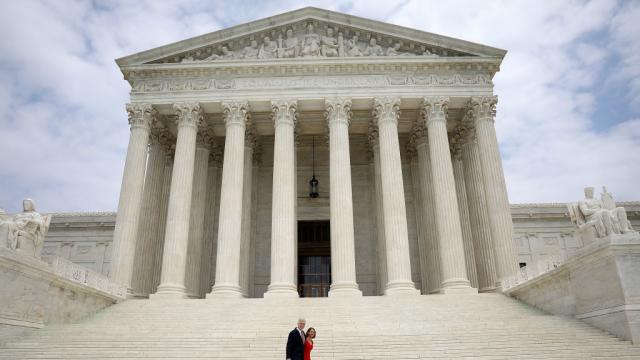In a unanimous decision today, the US Supreme Court struck down a North Carolina law that prevents sex offenders from posting on social media where children might be present, saying it “impermissibly restricts lawful speech”. In doing so, the Supreme Court asserted what we all know to be true: Posting is essential to the survival of the republic.
Photo: Getty.
The court ruled that to “foreclose access to social media altogether is to prevent the user from engaging in the legitimate exercise of First Amendment rights”. The court correctly noted that “one of the most important places to exchange views is cyberspace”.
In 2002, when the petitioner, Lester Gerard Packingham, was 21, he was convicted of having sex with a 13-year-old girl. In 2010, Packingham posted a Facebook update: “Man God is Good! How about I got so much favour they dismissed the ticket before court even started? No fine, no court cost, no nothing spent. . . . . .Praise be to GOD, WOW! Thanks JESUS!”
That post led to a charge and conviction under the state’s law making it a felony for sex offenders to access social networking sites that allow children to create accounts.
That law was ruled to be overly broad, barring “access to what for many are the principal sources for knowing current events, checking ads for employment, speaking and listening in the modern public square, and otherwise exploring the vast realms of human thought and knowledge”.
Justice Kennedy wrote movingly about the societal value of posting, saying:
While we now may be coming to the realisation that the Cyber Age is a revolution of historic proportions, we cannot appreciate yet its full dimensions and vast potential to alter how we think, express ourselves, and define who we want to be.
And:
On Twitter, users can petition their elected representatives and otherwise engage with them in a direct manner.
Quite right.
Go eat shit.
— Deadspin (@Deadspin) January 25, 2017
